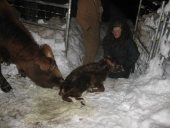
 6
6




 5
5




Invasive plants are Earth's way of insisting we notice her medicines. Stephen Herrod Buhner
Everyone learns what works by learning what doesn't work. Stephen Herrod Buhner
 10
10





How permies.com works
What is a Mother Tree ?

 7
7




 10
10




Passionate advocate for living at a human scale and pace.
Help me grow the permaculture presence in Indiana https://permies.com/t/243107
Concise Guide to Permies' Publishing Standards: https://permies.com/wiki/220744
 4
4











 4
4




PURPLE CARDS! GET YOUR GARDENING CARDS HERE!! https://www.kickstarter.com/projects/paulwheaton/garden-cards?ref=4qylf3. "The only thing...more expensive than education is ignorance."~Ben Franklin. "We can easily forgive a child who is afraid of the dark; the real tragedy of life is when men are afraid of the light." ~ Plato
 7
7










 2
2




$10.00 is a donation. $1,000 is an investment, $1,000,000 is a purchase.
 4
4




 3
3




Best luck: satisfaction
Greatest curse, greed
 3
3






|
CAUTION! Do not touch the blades on your neck propeller while they are active. Tiny ad:
Learn Permaculture through a little hard work
https://wheaton-labs.com/bootcamp
|






